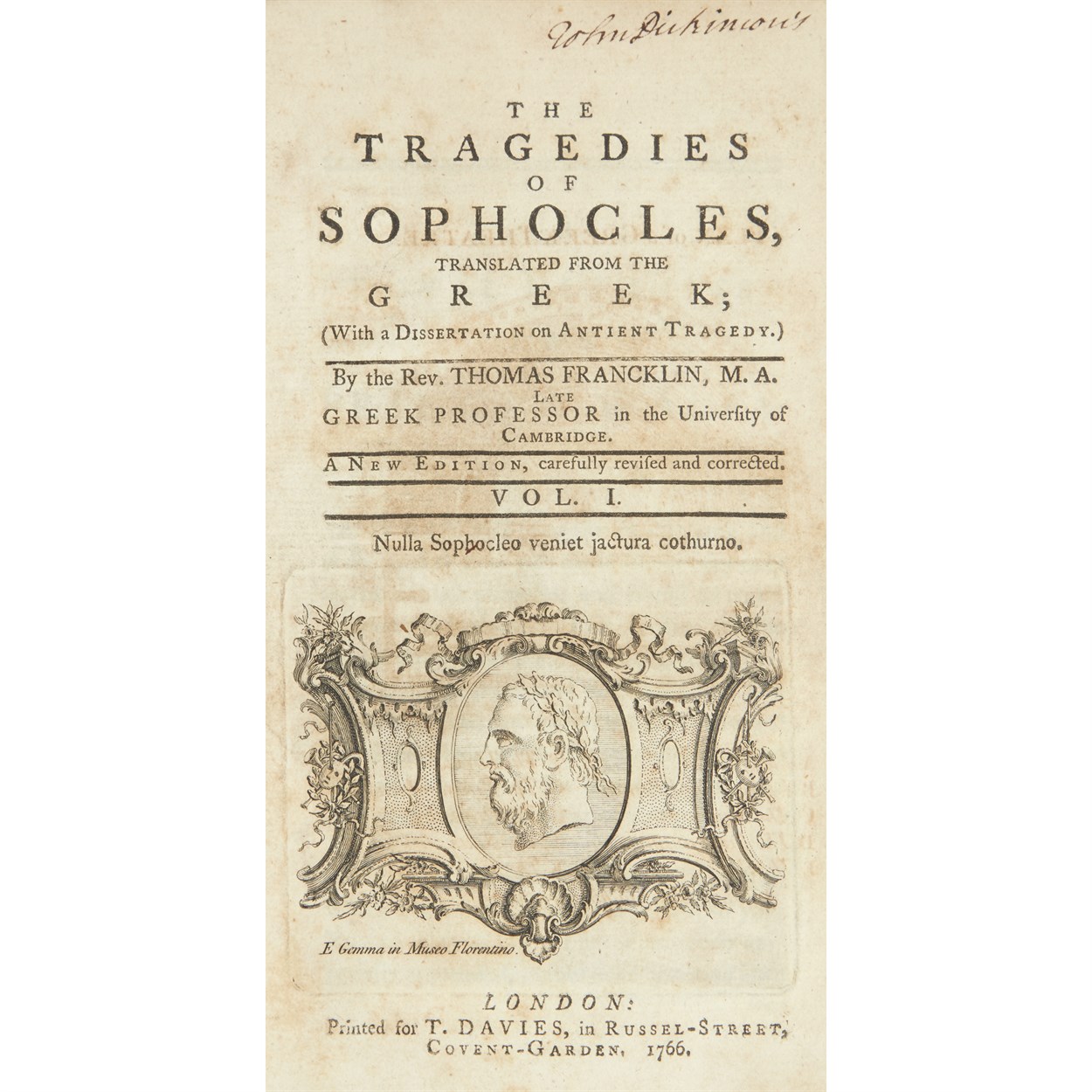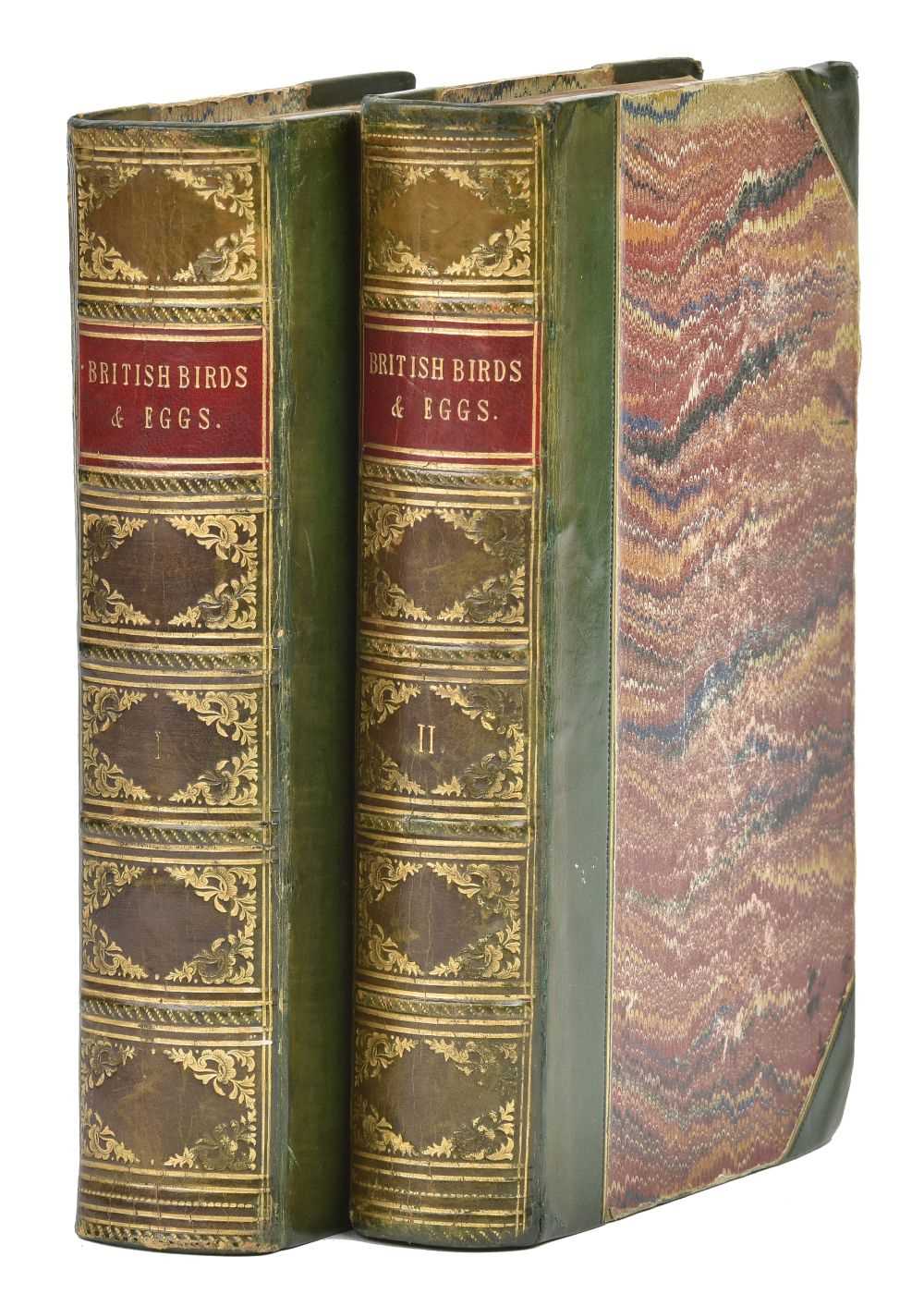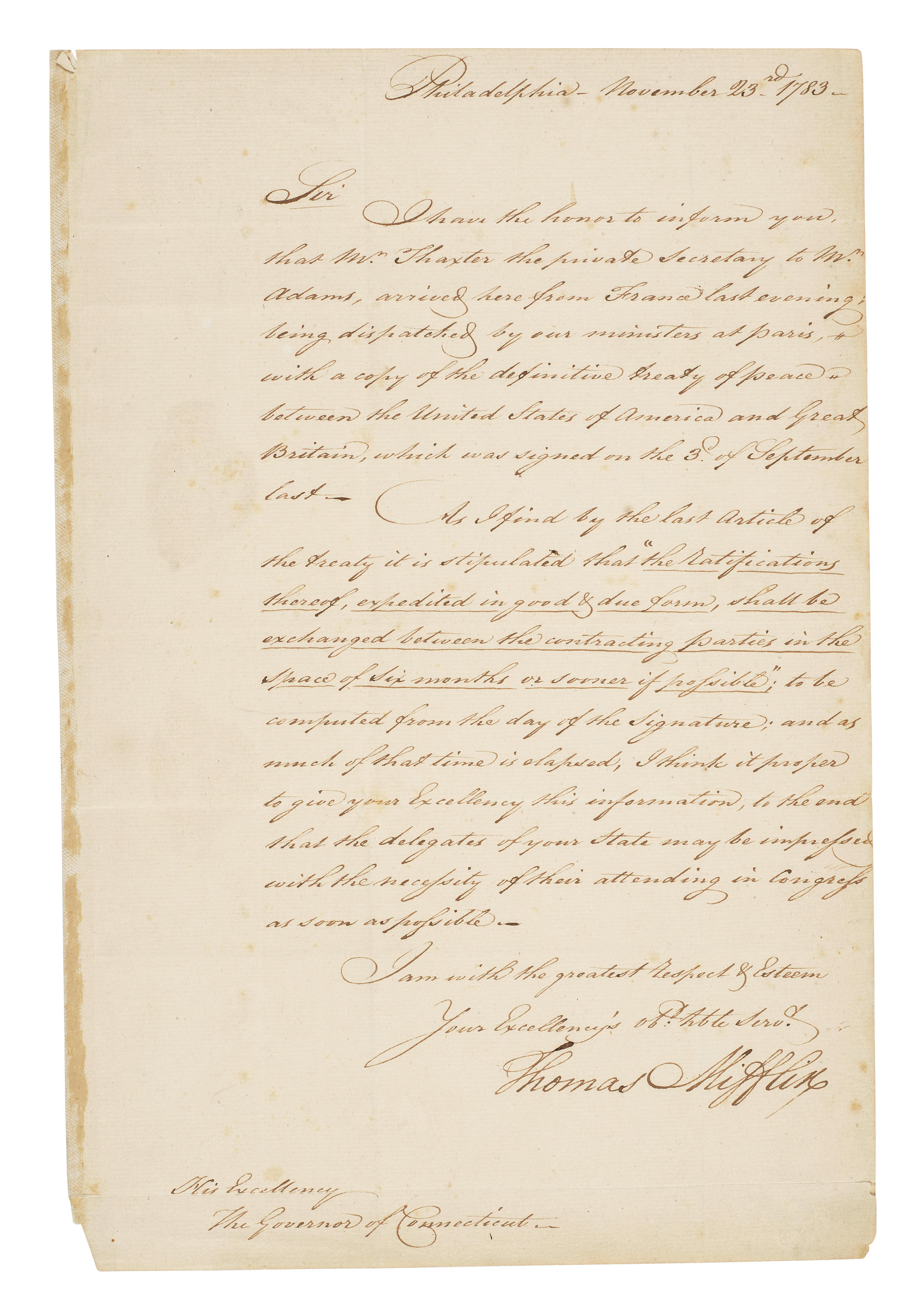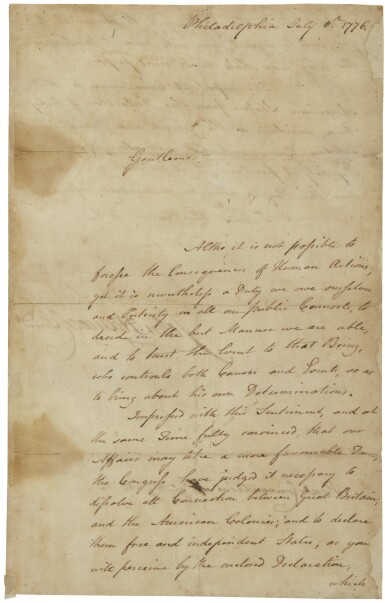John Dickinson's copy of Locke's Essay on Human Understanding London, 1731 DICKINSON, John (1732-1808) – LOCKE, John (1632-1704). An Essay Concerning Human Understanding. London: Printed for Arthur Bettesworth and Charles Hitch, et al, 1731. Volume 1 (only). John Dickinson's copy of Locke. A fine and important association copy belonging to the author of the first political tracts arguing for colonial rights (Letters from a Farmer) who was also one of the most important figures in the debate surrounding American independence. Known a the “penman of the Revolution,” Dickinson drafted the Declaration of Rights and Grievances for the Stamp Act Congress in 1765, and following the passage of the Townshend Acts in 1765 began penning a series of essays, “Letters from a Farmer" was initially published in the Pennsylvania Chronicle between December 1767 and April 1768, the essays were reprinted widely in newspapers throughout the colonies and soon appeared in several pamphlet editions in America. In 1769, Benjamin Franklin arranged for its publication in London and Paris (see lot 42 for Franklin's copy of the French edition). Unlike Thomas Paine, Dickinson was a moderate. And while he was not opposed to the concept of independence, he preferred that Congress draft the Articles of Confederation and secure a foreign military treaty prior to any declaration of independence. On 2 July 1776 Dickinson abstained from voting on independence and again on the vote approving the text on the 4th. He resigned from Congress shortly thereafter and returned to his home in Kent County, Delaware. Despite his opposition to Independence, he joined the militia the following year during Howe's advance on Philadelphia, making him one of the few delegates to Congress to ever take up arms during the War of Independence. Dickinson returned to Congress in 1781 and later served as the President of Delaware and later Pennsylvania. Locke's influence on the Founders cannot be overstated. Both the present work and Locke's Second Treatise on Government formed the philosophical underpinnings of the Declaration of Independence, the Bill of Rights, and to a lesser extent, the Constitution. In this first volume, Dickinson has added his ownership signature to the title page as well as a note on the front endpaper: "Passage 31.20.37. 57. The Distinction between Natural Inclination, and Ideas or Principles of Law or Duty 39-53-55 92" and corresponding marginal notes and highlights can be found on those pages. Also of note is Dickinson's highlighing of Locke's discussion of the concept of liberty as it relates to power (p. 194). Octavo (200 x 123mm). Underlining and emphasis marks in ink and pencil, many pages dog-eared, occasional marginalia (light scattered foxing). Contemporary calf (front board detached and worn, rubbing to extremities and chipping at spine). Provenance: John Dickinson (ownership signature on title page, shelfmark similar to the one in Franklin-Dickinson volume, see lot 42).
John Dickinson's copy of Locke's Essay on Human Understanding London, 1731 DICKINSON, John (1732-1808) – LOCKE, John (1632-1704). An Essay Concerning Human Understanding. London: Printed for Arthur Bettesworth and Charles Hitch, et al, 1731. Volume 1 (only). John Dickinson's copy of Locke. A fine and important association copy belonging to the author of the first political tracts arguing for colonial rights (Letters from a Farmer) who was also one of the most important figures in the debate surrounding American independence. Known a the “penman of the Revolution,” Dickinson drafted the Declaration of Rights and Grievances for the Stamp Act Congress in 1765, and following the passage of the Townshend Acts in 1765 began penning a series of essays, “Letters from a Farmer" was initially published in the Pennsylvania Chronicle between December 1767 and April 1768, the essays were reprinted widely in newspapers throughout the colonies and soon appeared in several pamphlet editions in America. In 1769, Benjamin Franklin arranged for its publication in London and Paris (see lot 42 for Franklin's copy of the French edition). Unlike Thomas Paine, Dickinson was a moderate. And while he was not opposed to the concept of independence, he preferred that Congress draft the Articles of Confederation and secure a foreign military treaty prior to any declaration of independence. On 2 July 1776 Dickinson abstained from voting on independence and again on the vote approving the text on the 4th. He resigned from Congress shortly thereafter and returned to his home in Kent County, Delaware. Despite his opposition to Independence, he joined the militia the following year during Howe's advance on Philadelphia, making him one of the few delegates to Congress to ever take up arms during the War of Independence. Dickinson returned to Congress in 1781 and later served as the President of Delaware and later Pennsylvania. Locke's influence on the Founders cannot be overstated. Both the present work and Locke's Second Treatise on Government formed the philosophical underpinnings of the Declaration of Independence, the Bill of Rights, and to a lesser extent, the Constitution. In this first volume, Dickinson has added his ownership signature to the title page as well as a note on the front endpaper: "Passage 31.20.37. 57. The Distinction between Natural Inclination, and Ideas or Principles of Law or Duty 39-53-55 92" and corresponding marginal notes and highlights can be found on those pages. Also of note is Dickinson's highlighing of Locke's discussion of the concept of liberty as it relates to power (p. 194). Octavo (200 x 123mm). Underlining and emphasis marks in ink and pencil, many pages dog-eared, occasional marginalia (light scattered foxing). Contemporary calf (front board detached and worn, rubbing to extremities and chipping at spine). Provenance: John Dickinson (ownership signature on title page, shelfmark similar to the one in Franklin-Dickinson volume, see lot 42).
.jpg)














Try LotSearch and its premium features for 7 days - without any costs!
Be notified automatically about new items in upcoming auctions.
Create an alert